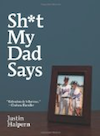news
March 12, 2010 6:40:39.209
I think life is only going to get harder for the wire services like Reuters. Bear in mind that until the internet era, wire services were Twitter-like - they were the first place that news showed up. Now?
Last night, Reuters released their social media policy, which includes instructing journalists to avoid exposing bias online and tells them specifically not to "scoop the wire" by breaking stories on Twitter.
I understand their point, but am not at all sure how they'll accomplish this. When a huge story (like the Chilean earthquake) breaks now, where does the early news flow from? Twitter, uStream, and other similar services. The wire services are in the same position that newspapers were in when the wire services popped up - and they eventually chose to work with the wires.
It'll be harder for the wire services, because they can't work with Twitter (et. al.) exclusively, as the papers were able to do. IMHO, this just heralds more disintermediation.
Technorati Tags:
social media, wire services
posted by James Robertson
news
March 4, 2010 5:19:53.926
I guess you could lose an iPhone or Touch the same way - cheap wifi finders can be used to track down an active device - PCWorld reports:
A statement by the mobile security software vendor highlighted a recent warning from a security specialist at University of Technology, in Jamaica. He said that it appeared crooks running a lottery scam on the island were using stolen laptops to do so. They tracked down the often out-of-sight computers using Wi-Fi radio detectors.
And the cost for such trackers is $50 or less, so it's not like there's a high bar to entry. Sobering...
posted by James Robertson
news
February 27, 2010 16:00:40.138
The good news is, we can see tsunamis coming now. The bad news is, other than getting to high ground, there's not a lot you can do about a tsunami. For the rest of us who are not (directly) affected, there's live streaming available - that's certainly new. Interesting times we live in...
Technorati Tags:
tsunami, earthquake
posted by James Robertson
news
January 22, 2010 17:39:32.510
posted by James Robertson
news
January 20, 2010 15:51:21.884
I know that the Times is trying to shore up revenue, but their problem is more basic: their newspaper minded business model is dead, and they just don't realize it yet:
Starting in early 2011, visitors to NYTimes.com will get a certain number of articles free every month before being asked to pay a flat fee for unlimited access. Subscribers to the newspaper's print edition will receive full access to the site without extra charge.
The problem with that is simple: if I (or anyone else, for that matter) links to a NY Times story, we have no way of knowing whether any given reader will be able to read the story. Far safer and simpler to just find another source, because that's a problem. As Jeff Jarvis likes to say, links are the currency of the net - and the Times is pushing a wall in front of theirs.
And yes, there is irony in this including a link to a Times story - but it's free for now :)
Technorati Tags:
paywall, business model
posted by James Robertson
news
January 17, 2010 23:45:40.318
I see the Times is leaning in a paywall direction again:
After a year of sometimes fraught debate inside the paper, the choice for some time has been between a Wall Street Journal-type pay wall and the metered system adopted by the Financial Times, in which readers can sample a certain number of free articles before being asked to subscribe. The Times seems to have settled on the metered system.
While I understand the need to make money, I'm just not sure this is going to work for them. The problem for the Times is that they desperately want to preserve their existing business model in an environment that will support a lot fewer employees nad overhead. Then there's the loss of influence problem - I ran across this commeneary from Ann Althouse:
For me, reading on line is tied to blogging. I'm not going to spend my time reading sites that I can't blog, and I'm not going to blog and link to sites that you can't read without paying.
Now, I'm a very small player, so the loss of links from me won't mean much, but I feel the same way. During the baseball season, I've often linked to stories about the Yankees (and the pennant races in general) in the Times. With this change? I can't link to stories that are going to be invisible to most people either,
Technorati Tags:
media, paywall
posted by James Robertson
news
January 14, 2010 14:49:25.952
Spotted in Engadget
Here's an interesting little new media legal dilemma for you: apparently there are several paid apps in the iPhone App Store that bill themselves as "readers" for publications like the New York Times, CNET, and the BBC, but aren't actually licensed or official in anyway -- they're just pulling RSS feeds. That means people paying for an app like The New York Times Mobile Reader aren't actually getting an app from the Times -- and, perhaps more importantly, the Times isn't getting anything from anyone. Seems like Apple should probably just shut these apps down, but that's the interesting part: all these apps are pretty much just custom-built feed readers, and you can generally access all of the same content using Safari.
I noticed this because the idea of a "Smalltalk Daily" reader like the ones discussed above seemed like a good idea, and a friend of mine built a proof of concept that I like. White label is one thing; this gray label thing is the sort of thing you would think the app store approval process would weed out.
Technorati Tags:
iPhone, copyright
posted by James Robertson




